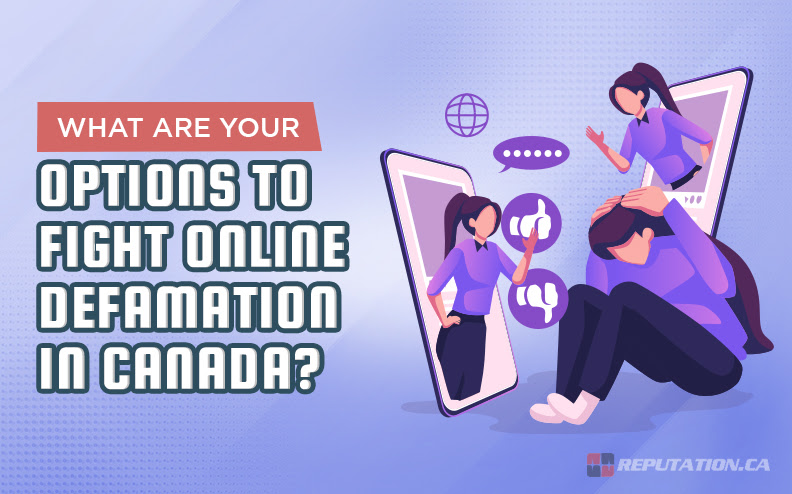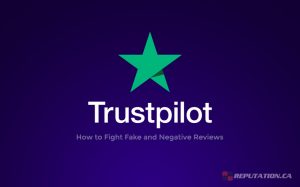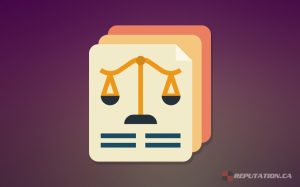False online statements can damage your personal reputation much faster in our connected world. Something you spent years building can be ruined in just a few minutes if untrue claims about you end up online. You have options under Canadian law to fight back against these harmful statements. The legal system was built to balance the protection of free speech while also enabling you to defend your hard-earned reputation.
Actually, you’ll need to act faster when someone defames you online! Also, try sending a cease-and-desist letter or requesting that the platform remove the false content before advancing to a lawsuit. Depending on how serious the situation is, you might use an easy removal request or need more rigorous legal proceedings. Online defamation comes with challenges in how courts hear your case and handle evidence, so you might use targeted strategies to resolve the issue completely.
The courts in Canada are constantly updating their decisions to manage new types of online reputation problems as technology evolves over time.
Let’s talk about how you can combat online defamation and how courts manage these cases.
The Defamation Law In Canada
If someone makes bad comments about you online, you might have a defamation case under Canadian law.
Defamation happens when false statements damage your reputation and when other people see or hear them. You don’t need to show that the person wanted to hurt you intentionally – the damage to your reputation is what matters most.
Canadian defamation laws work differently from the American ones. In Canada, after you show that someone made harmful statements about you, the burden shifts to them to prove that what they said was actually true – it’ll give you a benefit in Canadian defamation cases. The legal system tries to find a balance between preserving your reputation and maintaining freedom of expression for everyone.
Canadian law recognizes two main types of defamation. Libel covers any written or recorded statements, while slander covers spoken words that weren’t recorded. Usually, since a lot of the online content gets written down or posted as text, libel cases dominate the online community.
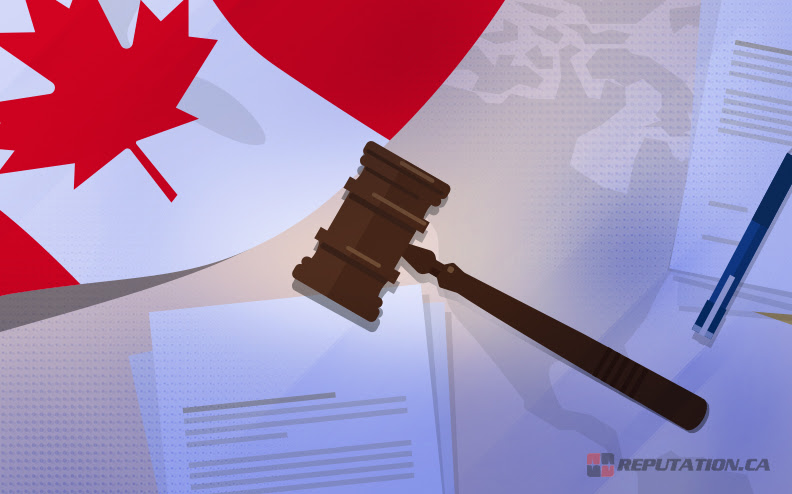
Someone you’ve accused of defamation can defend themselves in a few different ways. They might try to prove their statement was true, which would quickly dismiss your case. They could also argue for “fair comment” if they expressed an honest opinion based on some factual information. Sometimes, they might claim “qualified privilege,” which gives them some rights to make statements in certain situations.
Defamation laws can vary somewhat from province to province across Canada. While many of the provinces use common law traditions, Quebec follows a civil code system that takes a somewhat different strategy. Your location can affect how your defamation case proceeds and what legal standards will apply.
Defamation can sometimes become a criminal issue. But this doesn’t happen very often. The Canadian Criminal Code contains some sections on defamatory libel. But prosecutors don’t go after these types of charges. If someone gets convicted of criminal defamation, they might go to jail. That’s also the case when they knowingly spread some false information about you.
You need to move faster with any online defamation cases. Every province sets different time limits for filing defamation legal disputes, generally giving you between one and two years to take action. Be careful, though, because waiting too long might forfeit your right to sue altogether – make sure that you talk to a lawyer as soon as you find the defamatory content!
Legal Options For Online Defamation
When someone spreads lies about you online in Canada, you can actually fight back in a few different ways. Your easiest first step is to send a cease-and-desist letter. Also, you’re just asking them to remove the harmful content from the internet. People will take down the content as soon as they receive an official letter from a lawyer.
If they ignore your formal letter, you might need to file a defamation lawsuit against them. You’ll need to prove that what they said about you wasn’t true and that it damaged your reputation in some way. Keep in mind that these types of legal disputes frequently take a long time to resolve and can get pretty expensive for you.
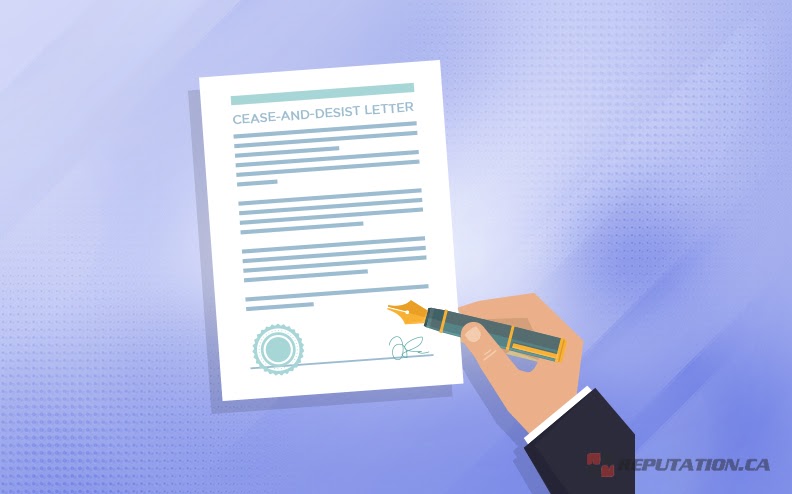
In some situations, the courts can order the person to remove the content immediately through something called an injunction – this helps to stop any more damage while your case moves forward in the system. You might also receive some money to compensate you for your damaged reputation or any income you lost because of the lies.
When the defamation is extremely serious, criminal charges might apply to the case – though this doesn’t happen very frequently. You’d need to notify the police for this particular strategy. Many people go with civil legal disputes instead of pursuing any criminal charges.
Another strategy is to work directly with the website that’s hosting the content. Most of these websites have systems in place for reporting harmful posts. Facebook, Twitter, and Google all let you flag the troublesome content on their sites. Just know that how fast they respond to you can vary quite a bit from site to site.
You might also think about mediation as a less formal alternative to going to court. A neutral person helps you and the other party come to an agreement. Mediation generally saves you some time and money compared to filing a lawsuit. You also get more say in how things turn out with this particular strategy.
In some cases, you might need court orders to make sure that evidence doesn’t disappear. The Anton Piller Order lets you search locations and take evidence before anyone can destroy it. These orders aren’t easy to get – lawyers sometimes call them the “nuclear weapon” of civil cases because they’re so powerful.
Recently, Canadian courts have started awarding bigger sums of money in online defamation cases. Just to give you an example, someone received $100,000 in damages for some defamatory Google reviews in 2016. In another case, a person got $200,000 for false accusations that someone spread about them on Twitter.
What To Do If You’re Defamed?
Also, when you find that someone has posted something untrue about you online in Canada, you should act. Actually save everything related to the harmful statements. You can usually take screenshots of any posts, comments, or articles that hurt your reputation. Just make sure that your screenshots show the date, time, and website address, too.
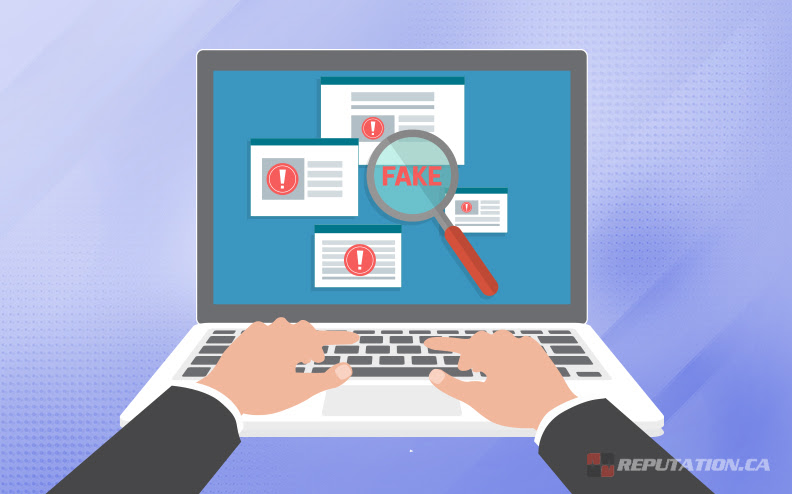
Often, you’ll probably want to talk with a lawyer who’s knowledgeable about defamation. They can check your situation and let you know if you have a strong case. A lawyer will tell you about what happens next and help you to know what to expect along the way.
Sometimes, sending the person a formal letter works – this letter, which is known as a cease and desist, basically asks them to stop sharing false information about you. It also mentions that you might take them to court if they don’t remove what they posted.
If talking doesn’t solve the problem, then you might need to file a lawsuit. The courts can order someone to take down harmful content about you. They might also need to pay you some money for damaging your reputation.
Time matters when you have defamation. Most Canadian provinces give you two years to file your lawsuit after something is posted online. If you wait too long, you could miss your chance to get help from the courts.
Sites like Facebook and Twitter have their own ways of managing harmful content. You can report posts that don’t meet their community standards, and they might take them down for you – it’ll work faster than going to court, though it’s not always successful.
You might not need a full trial for your defamation case. Your lawyer could recommend that you try mediation or negotiation to reach an agreement – this path tends to cost less money and takes less time than going through an entire court process.
Legal Defenses In Defamation Cases
If someone ever claims that you’ve defamed them, you actually have a few ways to defend yourself. One of the strongest defenses is basically to show that what you said is true. Under Canadian law, if you can prove that your statement was factual, it can’t be considered defamation.
Another helpful defense is to show that you were just sharing your own opinion. The Canadian courts usually protect honest opinions about public interest topics, and this protection helps everyone freely talk about real challenges without worrying about legal challenges.
The location where you make your statements can sometimes give you some protection. When you speak during court hearings or in Parliament, your statements can’t cause any defamation claims. Lawyers call this absolute privilege.
There’s also something called qualified privilege that works somewhat like absolute privilege. But it comes with limits. This defense applies when you share information with someone who should know it. Just remember, though, that this defense won’t work if you have acted with bad intentions.
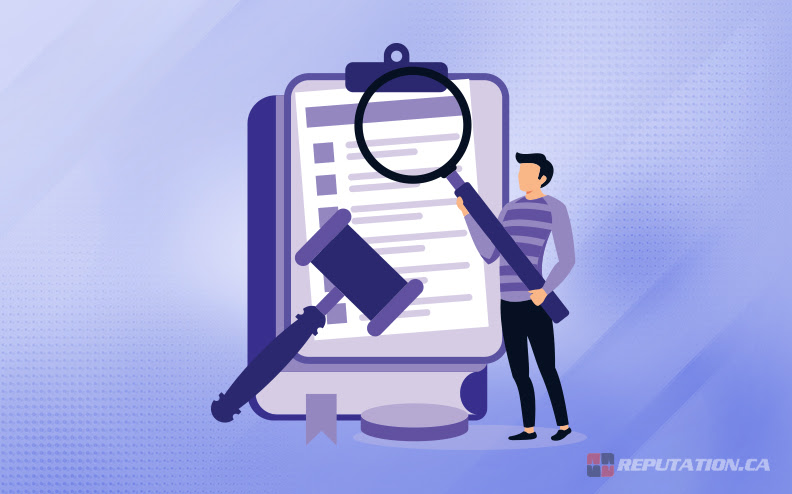
Did the person give you any permission to publish something about them? If so, they can’t turn around later and claim that you defamed them. Also, this consent defense makes perfect sense because they already told you that it was okay to share that information.
Time plays a big part in these cases, too. Many Canadian provinces give people two years from the publication date to file a defamation lawsuit. Once that time runs out, they generally can’t take any legal action against you anymore.
The courts find that some topics need open conversation for a healthy democracy. If you can show that you have contributed to a real public debate, you could be protected under the public interest defense.
How you have communicated matters as well. Did you take some steps to verify your information before sharing it? Did you check the facts and try to get comments from relevant people? The courts like to look favorably on responsible communication like this.
What looks harmful at a glance tends to make perfect sense when you see the full context.
Notable Defamation Cases In Canada
Canadian courts have actually handed down some big decisions on defamation cases in recent years. Usually, you can look at these rulings to try to get a sense of what might happen with your own situation. Remarkably, back in 2011, the Ontario Superior Court actually set a record with one of the biggest damage awards ever seen here in Canada. They told the defendant to pay about $650,000 in the Astley v. Verdun case.
The Supreme Court also got involved in these cases. They actually let a defamation lawsuit proceed in the Bent v. Platnick case back in 2020. After looking at the evidence, they determined that this wasn’t just someone trying to silence free speech. You can see how the Court works to balance free expression with your own right to protect your reputation.
You should know that defamation claims don’t always succeed. The Supreme Court dismissed a defamation claim in the Hansman v. Neufeld case just last year. They decided that free expression carried more weight in that particular situation. Their ruling highlighted anti-SLAPP laws that help you avoid legal troubles meant to silence public conversation.
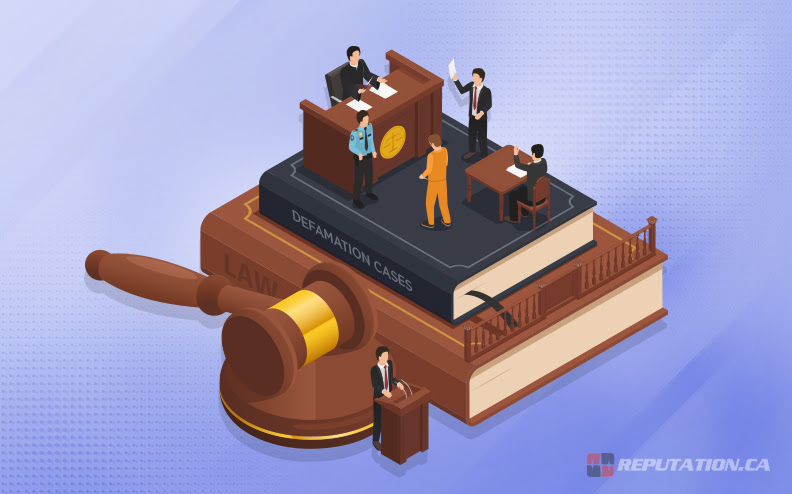
Courts are now holding online sites responsible for what happens on their sites. Just this year, some BC courts ordered a YouTuber to pay $350,000 in damages. Also, the I Buy Beauty LLC v. Dong case sends a clear message to online influencers: you can’t just say whatever you want online without consequences. This shows how Canadian courts deal with all online harm.
You can actually even sue some popular sites like Twitter right here in Canada. A 2021 decision in Giustra v. Twitter confirmed that Canadian courts can take on cases about all online content that people view in Canada. Why does this matter to you? It means that you don’t need to chase after big tech businesses in their own home countries. You can still fight for justice within our own Canadian legal system.
These cases show how Canadian courts find the real damage that online defamation actually causes. When defamation gets serious, you might receive some big financial awards. Do you want to know your options to fight back? They’ll depend on your very circumstances and how the defamatory content has affected your life.
Monitor and Manage Your Reputation
We’ve already covered quite a bit about handling untrue statements online in Canada. Your rights help you make a good choice when someone posts harmful comments about you on the internet. Some legal options are available when you need them. But you should also use them after thinking about what you want to achieve. When you take a few easy steps, they can usually help solve the problem before it grows.
When your reputation comes under attack, you’ll naturally want to defend yourself. That makes sense. But if you take a moment to breathe and think about your strategy, it might save you some time, money, and stress down the road. The cases that we talked about show that each situation is different. Courts try to balance the protection of people’s reputations with allowing free speech. Do you think it’s become easier to damage someone’s name online than it was before the internet?

The legal system can give you a few ways to protect yourself from false claims. The best strategy depends on your own situation. Terms like truth, fair comment, and responsible communication matter quite a bit in these cases. These principles help keep our online discussions honest while still letting people share their views.
Having experts by your side makes a real difference when you’re handling your online image. You can take control of your own reputation with some help from Canada’s leading experts in review management, social media, public relations, and crisis response. We help you get through the tough web and build a stronger presence.
Get in touch with us at Reputation.ca today for some help with your online reputation!




